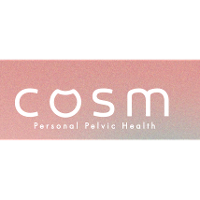Medtech startup Cosm Medical has secured $4.7 million CAD ($3.8 million USD) in an oversubscribed seed round to create custom medical devices for women suffering from pelvic floor disorders.
The new funds will enable Cosm to further develop and launch its digital gynecology platform and gynecological prosthetics, which it calls Gynethotics. The investment will also go toward expanding research and development, and operations. Cosm plans to double its team of 10 employees.
The startup combines novel physiological biomarkers, AI-driven cloud software, and 3D printing to create its custom prosthetics.
Fusion Fund led the round with participation from iGan Partners, MaRS IAF, Telus Pollinator Fund, Archangel Fund, and several physicians and angel investors. The round closed in late March and not all investors were disclosed.
Lu Zhang, founder and managing partner of Fusion, will join Cosm’s board.
Derek Sham, Cosm’s founder and CEO, noted that Zhang’s experience included founding a medical device startup that she sold to Boston Scientific. “She’s a woman who’s done it before, and super well-connected in the fundraising community in Silicon Valley,” Sham said.
For her part, Zhang said she’s excited about the potential for Cosm’s unique AI and data-driven platform to change the standard of care for women suffering from pelvic floor disorders.
Sham witnessed his grandmother suffer through a pelvic health problem, and found himself unable to find her the care he thought she deserved. “I thought I’m going to use my grandma’s experience to launch something to change the standard of care for pelvic floor disorders,” Sham told BetaKit.
The experience inspired Sham to build a digital gynecology platform that he said is similar to what’s already available in such fields as custom dentistry, hearing, and orthotics. “However, we’re focused on improving the state of a very common, growing, and underserved women’s health condition,” Sham noted.
Healthcare provider Closing the Gap estimates that one in three women are affected by a condition associated with pelvic floor dysfunction. And in a paper that Sham co-authored with three others, the authors noted that pelvic organ prolapse can affect up to 50 percent of the female population. The paper appeared in 2020 in the conference proceedings of Spie: the International Society for Optics and Photonics.
The current standard of care with gynecological prosthetics, commonly known as pessaries, involves trial-and-error with 100-plus shapes and sizes, and has relatively poor patient compliance and high complication rates, according to Cosm.
Cosm still has some hurdles to jump before it’s able to commercialize its technology. The startup is scaling its R&D team and operations, aiming for quality system audit this year, and the products are going through testing, and are in clinical studies. On the positive side, it has two abstracts on its technology which received approval this year from the American Urogynecology Society, and the International Urogynecology Association.
“There’s actually eight women in Toronto wearing Gynethotics right now,” Sham said, noting that Cosm received investigational approval last year to deploy the devices in patients.
Cosm anticipates generating revenue in the same manner as other custom medical device markets, which is from sales. The startup works with clinicians to provide devices for their patients.
The International Trade Administration in the United States notes Canada has the eighth largest medical device market in the world, and pegs its value at $10.7 billion CAD. The Canadian government reports that in 2019 medical device exports to the United States were worth $3 billion CAD or 70 percent of Canada’s total medical device exports.
It’s easy to assume that HyIvy Health, a startup that offers its own digital pelvic health system, might be a competitor to Cosm, but that’s not the case. Sham said that he’s good friends with HyIvy’s founder and CEO, Rachel Bartholomew. They call each other every month or two, and Sham views HyIvy as a potential, future collaborator.
HyIvy’s technology differs from Cosm’s in that its pelvic health rehabilitation system is a fully ergonomic, remote monitoring device collecting multiple data sets and connecting patients to their clinicians and pelvic floor therapists virtually.
By training, Sham is a biomedical engineer. Among other positions, he worked for the National Research Council as a research associate with the Institute for Biological Sciences; with the University of Ottawa Heart Institute as a Co-op Research Engineer; and in a number of positions with Laborie Medical Technologies.
At the latter, Sham ended up as the company’s global marketing director where he worked alongside the leadership team, consultants, and bankers to prepare for the sale of Laborie. Patricia Industries acquired Laborie in 2016 for $640 million USD ($800.4 million CAD).
Sham incorporated Cosm in 2017 and began full time work there in 2018. Originally, Cosm started as a more of a diagnostic firm, but turned to personalized therapeutics. Sham said the change came about because of feedback from the market.
Before this current round, Cosm has previously raised a total of $1.9 million through two pre-seed rounds and a convertible note. The startup has graduated from the Creative Destruction Lab, Medtech Octane Launchpad, and Berkeley Skydeck accelerator programs.
Sham also showed he knew a thing or two about pitching. Cosm won the BASF Additive Manufacturing, RESI Digital, and TieQuest Toronto pitch competitions in 2021.
Now, as he embarks on guiding Cosm through two more sets of clinical trials, and prepares to grow the company, one thing is certain: His grandmother would be proud.
